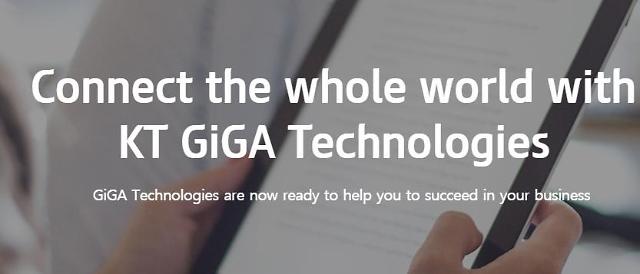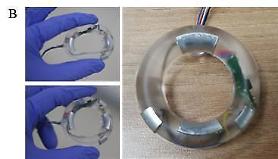
[Courtesy of KT]
SEOUL -- NeuroSigma, a medical device maker in California, has forged a partnership with South Korea's top telecom company KT to promote the development and commercialization of a new electroceutical based on eTNS, a cell phone-sized device that delivers low-level electric stimulation to the trigeminal nerve through a patch placed on a patient’s forehead.
An electroceutical is an electronic device designed to affect biological systems in such a fashion as to alleviate or mitigate symptomatology or pathology. Electroceuticals are a new category of therapeutic agents that act by targeting the neural circuits of organs. NeuroSigm's next-generation monarch external trigeminal nerve stimulation (eTNS) system addresses attention-deficit hyperactivity disorder (ADHD).
KT said it would support the design and development of new eTNS products based on artificial intelligence, big data and cloud capabilities while seeking an advanced monitoring and AI analysis service interlocked with KT's digital healthcare platform. They would cooperate in the establishment of commercialization in South Korea.
With KT's information and communications technology, NeuroSigma CEO Leon Ekchian promised to create additional value such as design, functionality, and customer experience. NeuroSigma's device is indicated for patients between the ages of seven and 12 who are not currently taking prescription ADHD medication. Common side effects ranged from drowsiness to headache and fatigue, but no serious adverse effects have been discovered.
"In South Korea, digital therapy is still in its starting stage, but its utility and growth potential are excellent," Kim Hyoung-wook, executive vice president of KT's future value task force, said in a statement on June 14. "Starting with business cooperation with Neurosigma, we will actively foster digital therapy including electroceuticals as a new healthcare business."
KT has developed its presence in the healthcare ecosystem by forming partnerships with hospitals, pharmaceutical companies and bio-ventures. In April, the company teamed up with the state-run Korea Advanced Institute of Science & Technology (KAIST) to develop a care service system that incorporates AI, big data, and information communication technology.
Copyright ⓒ Aju Press All rights reserved.




